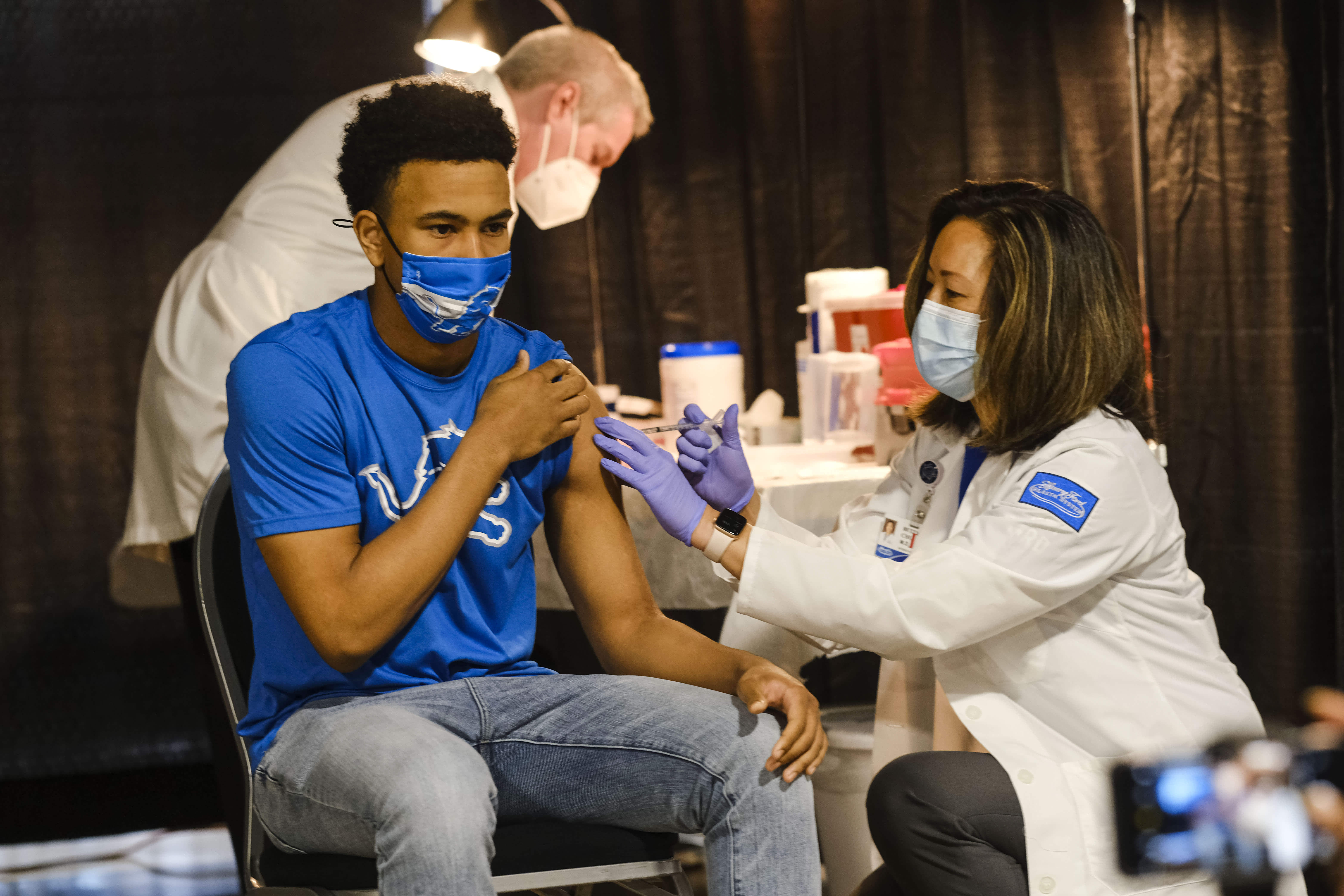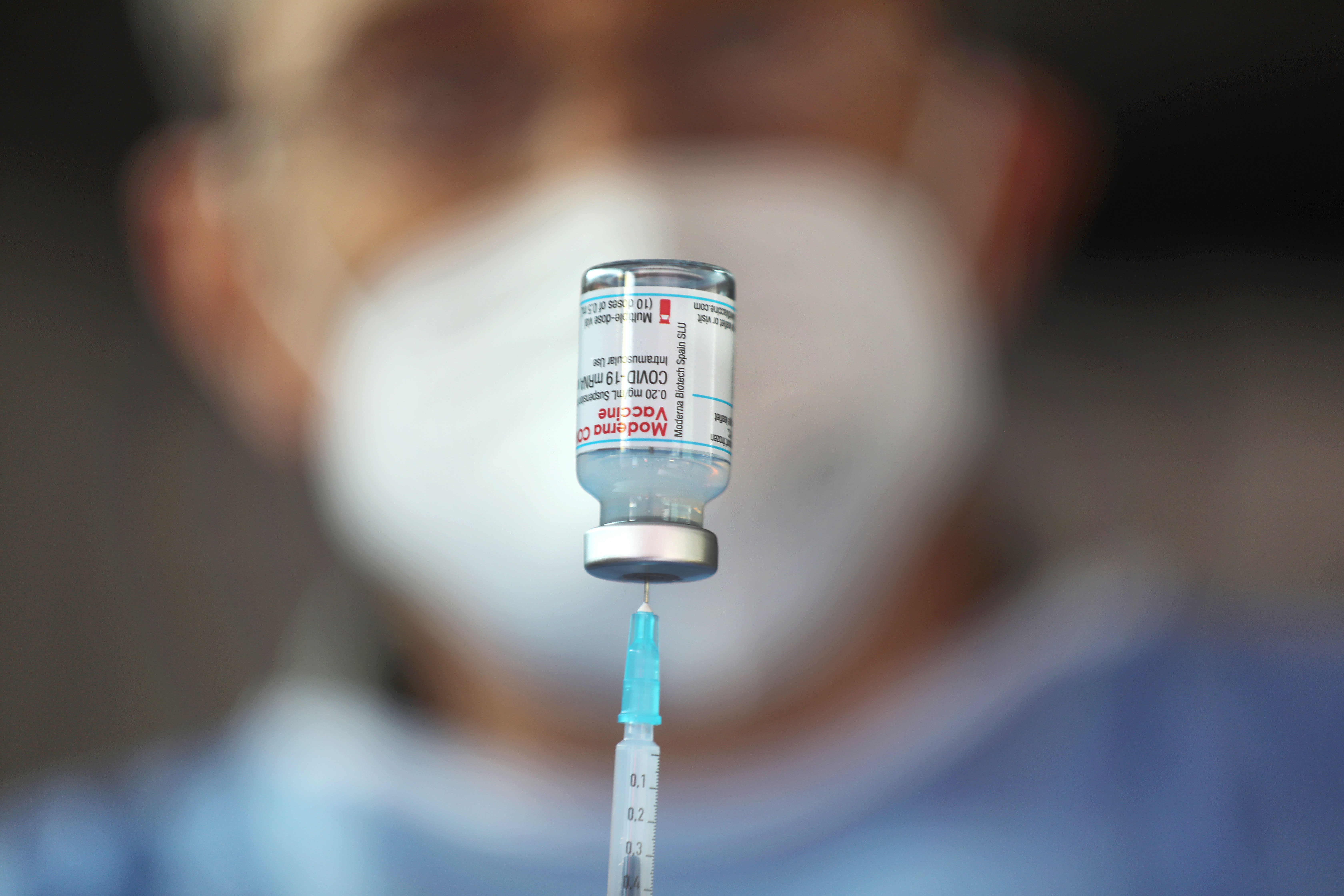With the U.S. Food and Drug Administration authorizing emergency use of Pfizer's COVID-19 vaccine in children ages 12 to 15 and the Centers for Disease Control and Prevention expected to recommend the shots for young teens, vaccinations could begin later this week.
Much like vaccinations for young adults, Pfizer's COVID vaccine could bring some mild, but not concerning, side effects for kids as well, health officials say.
The younger teens received the same vaccine dosage as adults and reported the same side effects, mostly sore arms and flu-like fever, chills or aches that signal a revved-up immune system, particularly after the second dose.
Dr. Candice Robinson, medical director for the Chicago Department of Public Health, noted last week that sore arms and similar common side effects associated with the vaccine were most common for younger populations receiving the vaccine, but said no concerns have so far been raised.
Feeling out of the loop? We'll catch you up on the Chicago news you need to know. Sign up for the weekly Chicago Catch-Up newsletter here.
"I think the side effect profiles for kids are probably some of the same things we see, you know, with vaccines with adults," she said. "The sore arms and things like that are kind of the most common side effects after vaccination and things that kids see after their vaccination with their routine vaccinations, as well, but no serious safety concerns have been identified with the use of Pfizer in this age group at this time."
Dr. Markeita Moore, a pediatrician with Advocate Children’s Hospital, echoed that claim, saying side effects for the younger group will likely be similar to 16- to 25-year-olds.
"They will have the same type of side effects as the 16 through the 25 group, which is injection site pain, which is fatigue, which is headaches," she said. "So those are the most common ones... It's not permanent, it is transient for about 24 to 48 hours."
Chicago's top doctor also said preliminary information did not indicate younger groups saw more or less side effects than others.
"There were no safety concerns, first and foremost - no unexpected side effects, not having worse problems with side effects," CDPH Commissioner Dr. Allison Arwady said Tuesday. "And that the vaccine was effective in terms of when they check the blood, the level of protection, meaning the antibodies that come from the vaccine were as good or, in fact, even better than what they had seen in the young adults."
The FDA on Monday declared the Pfizer vaccine is safe and said it offers strong protection for younger teens based on testing of more than 2,000 U.S. volunteers ages 12 to 15. The study found no cases of COVID-19 among fully vaccinated adolescents compared to 18 among kids given dummy shots.
The authorization announcement comes a month after Pfizer said its shot, which is the only COVID vaccine authorized in the U.S. for those age 16 and older, also provided protection for the younger population.
More intriguing, researchers found the kids developed higher levels of virus-fighting antibodies than earlier studies measured in young adults.
According to new figures from the American Academy of Pediatrics, COVID-19 infections in children are remaining stubbornly constant.
The data showed that children are now making up 22% of COVID-19 infections and they are about 1.2 to 3.1% of hospitalizations.
At least 296 children have died from COVID-19 in the U.S. alone and more than 15,000 have been hospitalized, according to a tally by the AAP.
"We've had kids hospitalized since the beginning of the pandemic, some who have been quite ill," Moore said. "We also in June of this past year, started to see the inflammatory syndrome that we've mentioned before... and those kids can be very sick down to very young ages, down to toddler ages."
Dr. Grace Lee, a pediatric epidemiologist at Stanford Children's Health said vaccines for children could lead to plummeting infection rates.
“Having vaccines gives you a huge layer of protection that goes above and beyond with what we can do with masking and social distancing and cohorting, etc,” she said.
Dr. Frank Belmonte, chief medical officer at Advocate Children’s Hospital, also noted that children getting vaccinated can help prevent spread among adults as well.
"Actually, in that 12 to 18 age range, there's about a 20% transmissibility," he said. "So even if they don't get, you know, really sick from the virus they can spread it to family members or to other vulnerable folks in their community."



